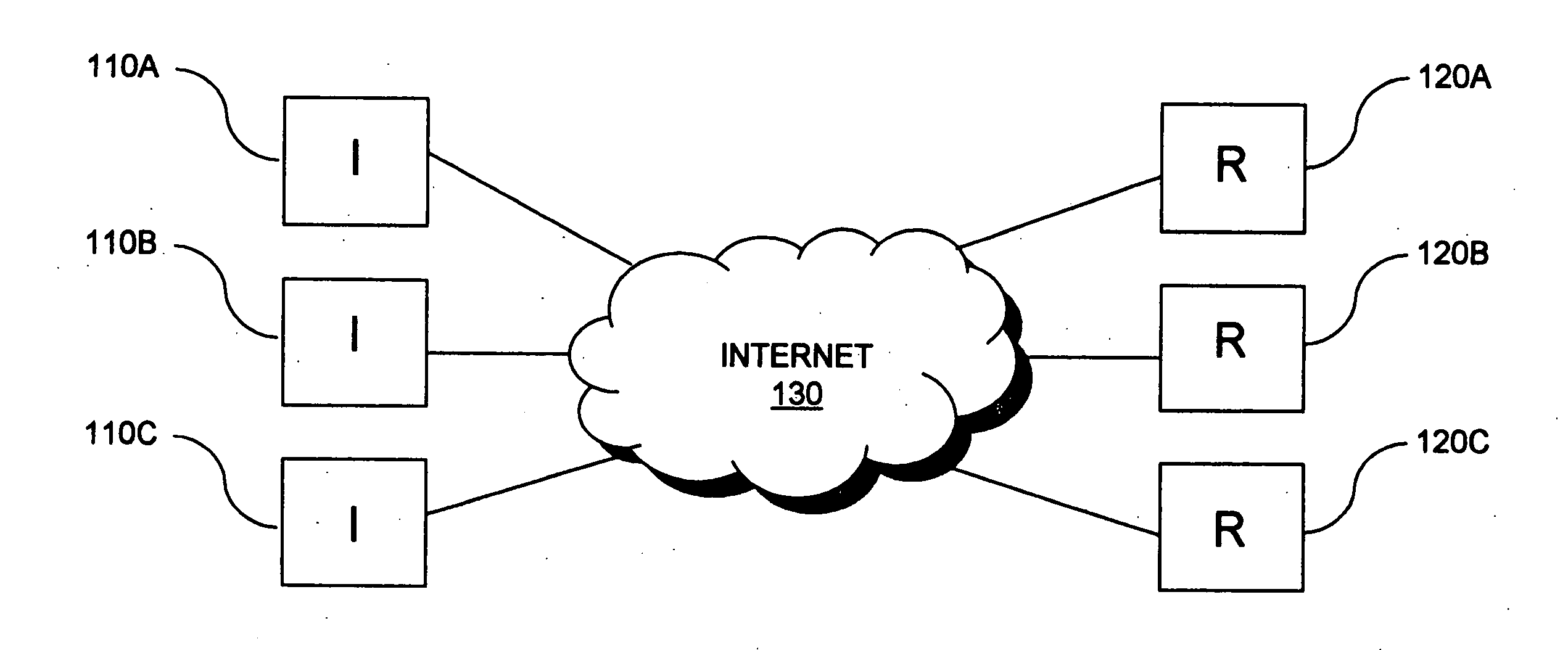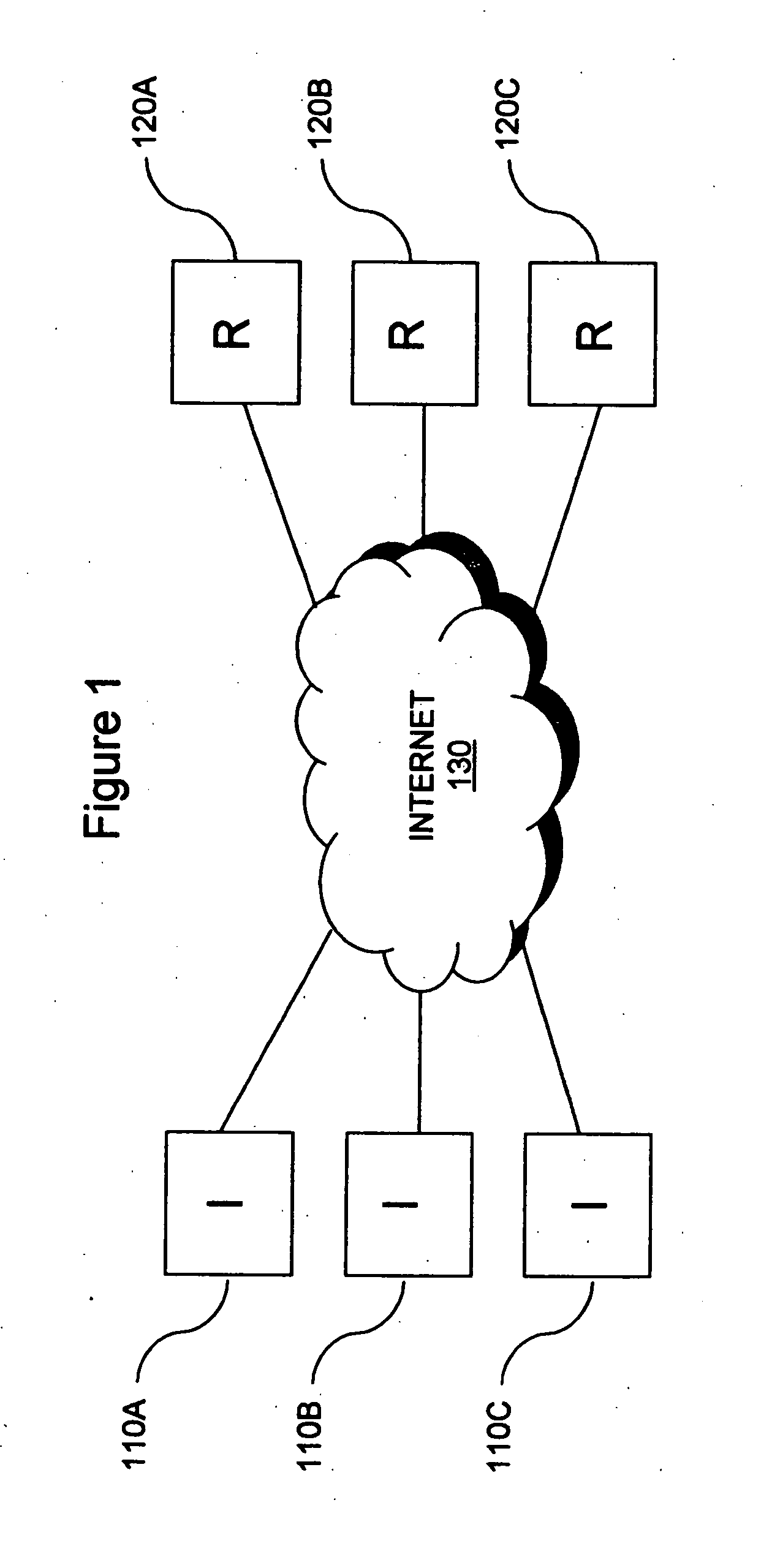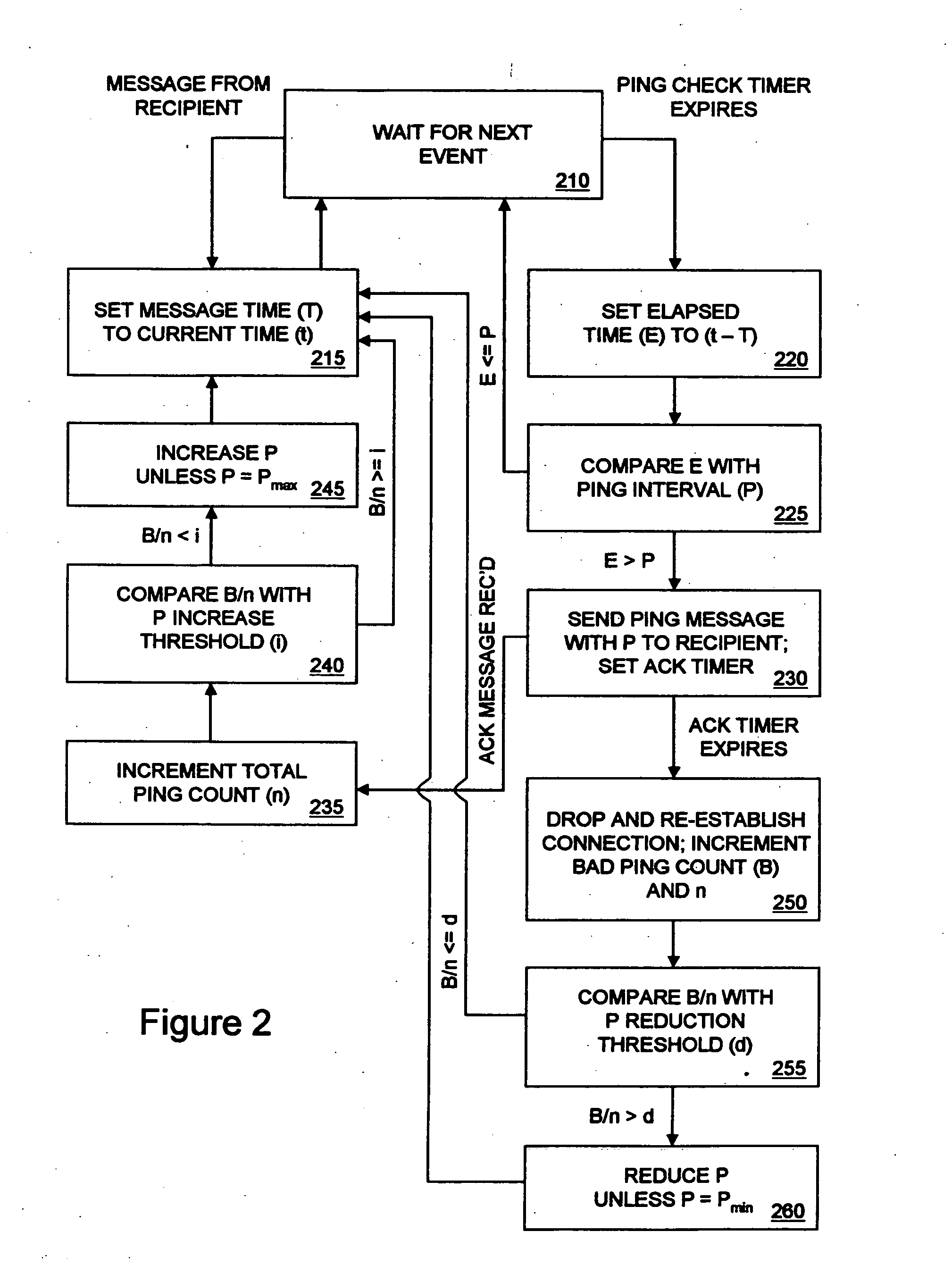Method and system for verifying logical connection
a logical connection and verification method technology, applied in the field of network connection maintenance, can solve the problems of severe congestion and even loss of connectivity, and achieve the effects of less reliable, not reliable, and improved connection status verification
- Summary
- Abstract
- Description
- Claims
- Application Information
AI Technical Summary
Benefits of technology
Problems solved by technology
Method used
Image
Examples
Embodiment Construction
[0015]In FIG. 1, a communication network in some embodiments of the invention is shown. The network includes initiating hosts (hereinafter “initiators”) 110 and receiving hosts (hereinafter “recipients”) 120 communicatively coupled over the Internet 130. Initiators 110 and recipients 120 may consist in one or more desktop and handheld network-capable electronic device types that execute software and / or firmware, such as personal computers, workstations, servers, mobile phones, personal data assistants (PDA), gaming consoles and multifunction printers, to name a few. Initiators 110 are responsible for establishing with recipients 120 over Internet 130 logical connections to support client-server or peer-to-peer software applications, for example. In some embodiments, logical connections are bidirectional connections that are established between an initiator and a recipient and maintained until such time as all messages to be exchanged between application software executing on the ini...
PUM
 Login to View More
Login to View More Abstract
Description
Claims
Application Information
 Login to View More
Login to View More - R&D
- Intellectual Property
- Life Sciences
- Materials
- Tech Scout
- Unparalleled Data Quality
- Higher Quality Content
- 60% Fewer Hallucinations
Browse by: Latest US Patents, China's latest patents, Technical Efficacy Thesaurus, Application Domain, Technology Topic, Popular Technical Reports.
© 2025 PatSnap. All rights reserved.Legal|Privacy policy|Modern Slavery Act Transparency Statement|Sitemap|About US| Contact US: help@patsnap.com



